
History
We want to combine tradition with innovation and modernity, but not replace it.
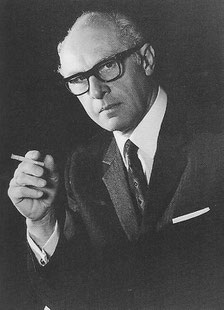
1951 – Founding of the company
It all started in "Powder Shed 9": Bruno Werner already had almost two decades of experience in the wood processing industry when he acquired a shed in the former Espelkamp ammunitions depot in 1951 in order to start manufacturing office furniture in series production. He recognised at an early stage that a constantly growing demand for office furniture would develop within the framework of reconstruction after the war.
58 men and 2 women
Bruno Werner understood his trade, in two senses: he was a recognised specialist in wood processing and he understood the people with whom he worked. He promoted an open and uncomplicated working atmosphere. This, combined with a love of innovation and skilled craftsmanship, still represents the guiding principles that ensure the economic success of the company today.
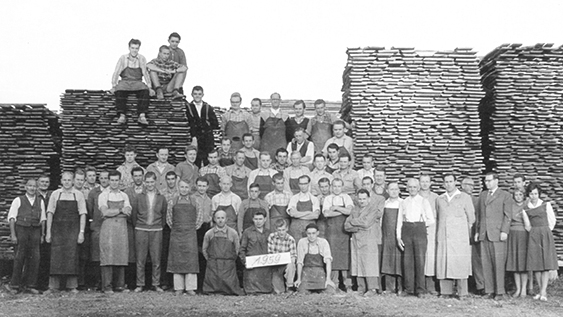

The 'StehRoll' brand
In 1952, the name 'StehRoll' was registered as a trade mark. For decades, the name 'Bruno Werner' stood for wooden roller shutter cupboards of especially high quality. The slats of the blinds were made of beech or oak and ran horizontally, giving the appearance of a continuous veneer front when closed – a completely new closure technology to date.
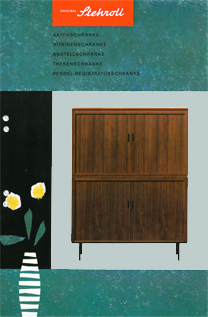
StehRoll – Home – Office
The various products that have left the werner factory halls in Espelkamp over the years are proof of the diversity of ideas in the company. In the 1950s, for example, the technically ingenious so-called “home offices” were introduced into the product range.
In the 60s, the portfolio was expanded with the addition of a hinged door cupboard option and a wall shelving system. This was followed in the 70s with the first sliding door cupboards and the development of exclusive executive office furniture.
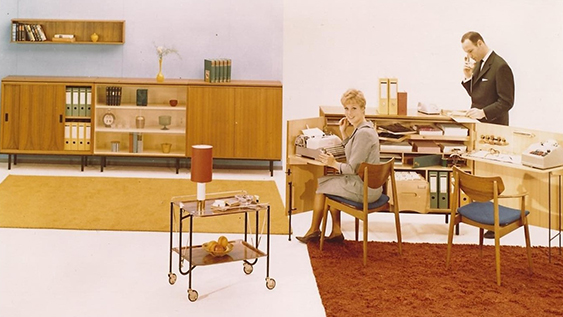
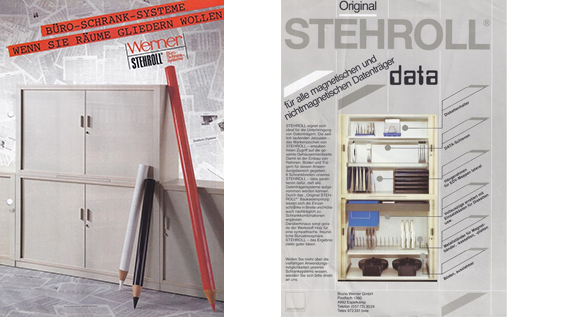
Office cupboard systems
The advance of technology in the 80s and 90s placed new demands on storage space. In addition to the usual office utensils, data carriers such as discs or magnetic tapes also needed to be stored in specially developed filing systems.
Individual cupboards developed into cupboard systems that also divide up rooms and give them structure. But well into the 90s, the roller shutter cupboard remained the 'star' among furnishings. In 1991, 'Bruno Werner' was producing 24,000 roller shutter cupboards per year.
The round storage space
The development of the round cupboard raised the profile of 'Bruno Werner' significantly. Wave shaped or segment-arc shaped cupboard systems opened up whole possibilities for new storage space structures. With protruding top panels, cupboards could be used as counters for the first time.
The company was restructured in 1991 with the appointment of Stefan Blahak (grandson of the company founder) and Irmgard Possin as directors. The name 'werner works' was then introduced to the market as the new company name.
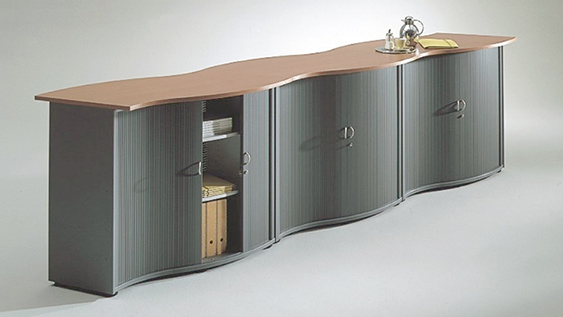
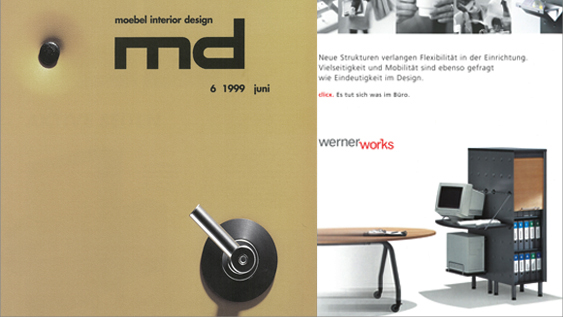
md front page
The new management placed the product lines 'cockpit', as a reception counter, and 'clix', a new cupboard system, on the market. The 'clix' landed werner works on the front page of the 'md' design magazine.
The 'cockpit' product line paved the way for the company to enter into the new business segment of 'reception furnishing'.
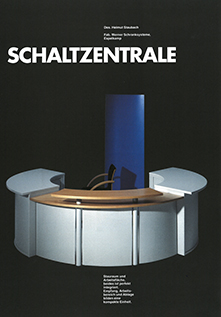
The 2000s
In 2002, the founding family passed the company into new hands. Directors Irmgard Possin and Michael Degenhardt took over the management of the company. The company, with its traditional roots, thus continues to be managed by its owners and be led into the future with success and personality.
With ongoing investments in state-of-the-art machinery and with its highly committed team of employees, 'werner works' ensures all the prerequisites for being able to react quickly and flexibly to all market requirements, both now and in the future.
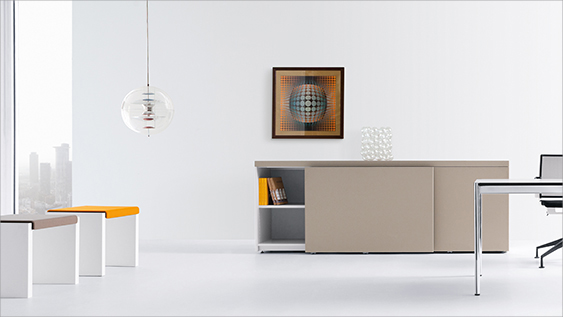
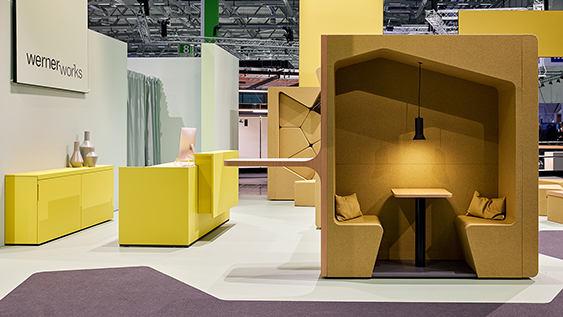
werner works today and in the future
Today, werner works develops and supplies contract furnishings which have a superior design and ensure perfection down to the smallest detail. This is reflected in all of the current product lines.
We believe that the office should be more than just a place to work. This is why we would like to continue to use our furniture and ideas to make a contribution to the design of modern and forward-thinking office concepts in the future.

